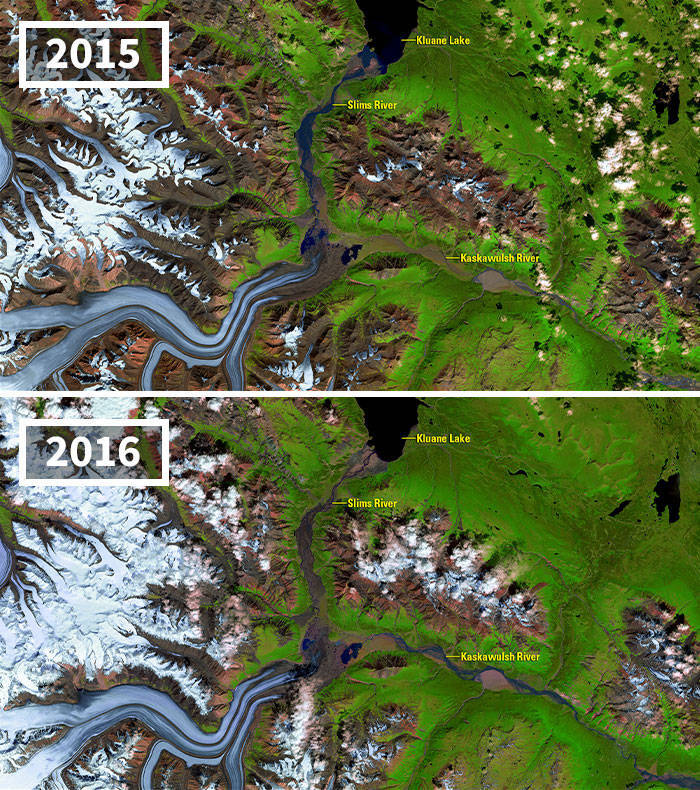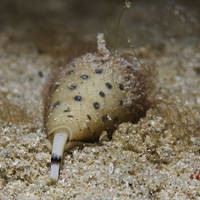Kaskawulsh Glacier Meltwater Alters Downstream Ecosystems

"Like most glaciers worldwide, Kaskawulsh Glacier in the Kluane National Park and Reserve of southwestern Yukon Territory, Canada, has receded over the past several decades. A Nature Geoscience article confirms that this receding glacier caused a rare instance of river piracy—the diversion of one stream’s headwaters into another. Instead of flowing north via the Slims River into Kluane Lake, eventually reaching the Yukon River and Bering Sea as it did before spring 2016, most of the meltwater now flows eastward to the Alsek River and Pacific Ocean via the Kaskawulsh River. This diversion brought sediment changes, varied timing of flows from the glacier and water level changes to the channels, possibly permanently altering downstream ecosystems."

Um, no I didn't notice that at all. One effort shows data from 2004, mainly due to 2004 being such a major year for the Muir Glacier. The rest are pretty recent. 20% are from 2020. 75% from the last 5 years.
Unless you meant that any remote sensing data is from the past, even if taken seconds ago.
Satellite data usually takes a little while to be made public due to processing requirements (e.g. ICESat-2 was launched in 2018, but some higher level products haven't been produced yet.) Then researchers need time to figure out what the data is actually showing.

Also, regarding the images being a few years old, that’s obviously for security reasons. Satellite images made available to the public are never current for obvious reasons.








yep....noticed that too.
Um, no I didn't notice that at all. One effort shows data from 2004, mainly due to 2004 being such a major year for the Muir Glacier. The rest are pretty recent. 20% are from 2020. 75% from the last 5 years.
Unless you meant that any remote sensing data is from the past, even if taken seconds ago.
Satellite data usually takes a little while to be made public due to processing requirements (e.g. ICESat-2 was launched in 2018, but some higher level products haven't been produced yet.) Then researchers need time to figure out what the data is actually showing.
Also, regarding the images being a few years old, that’s obviously for security reasons. Satellite images made available to the public are never current for obvious reasons.